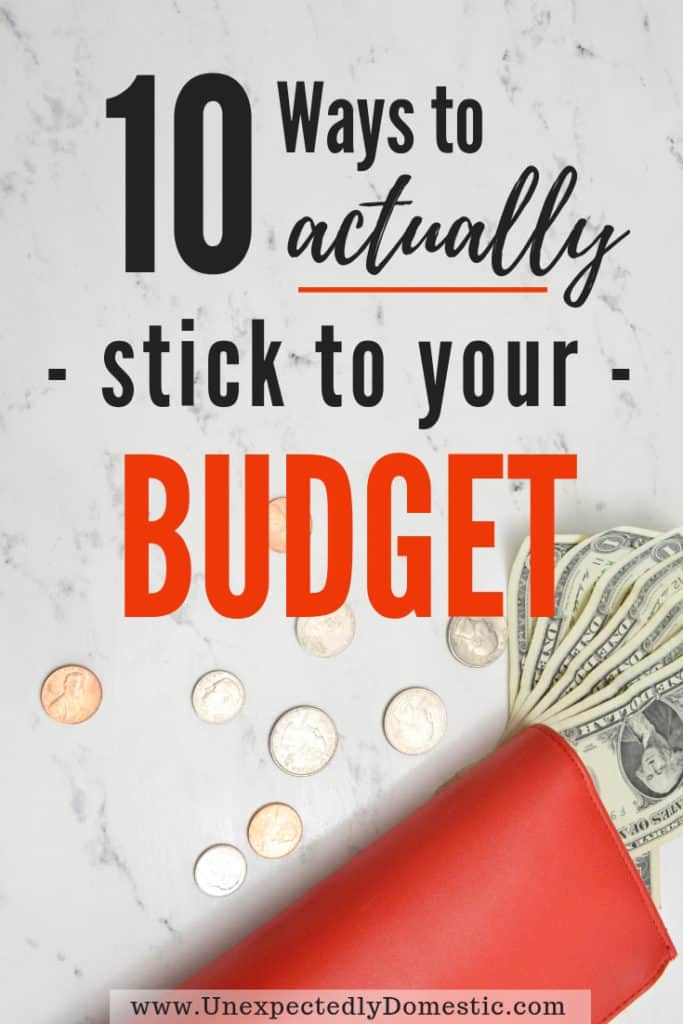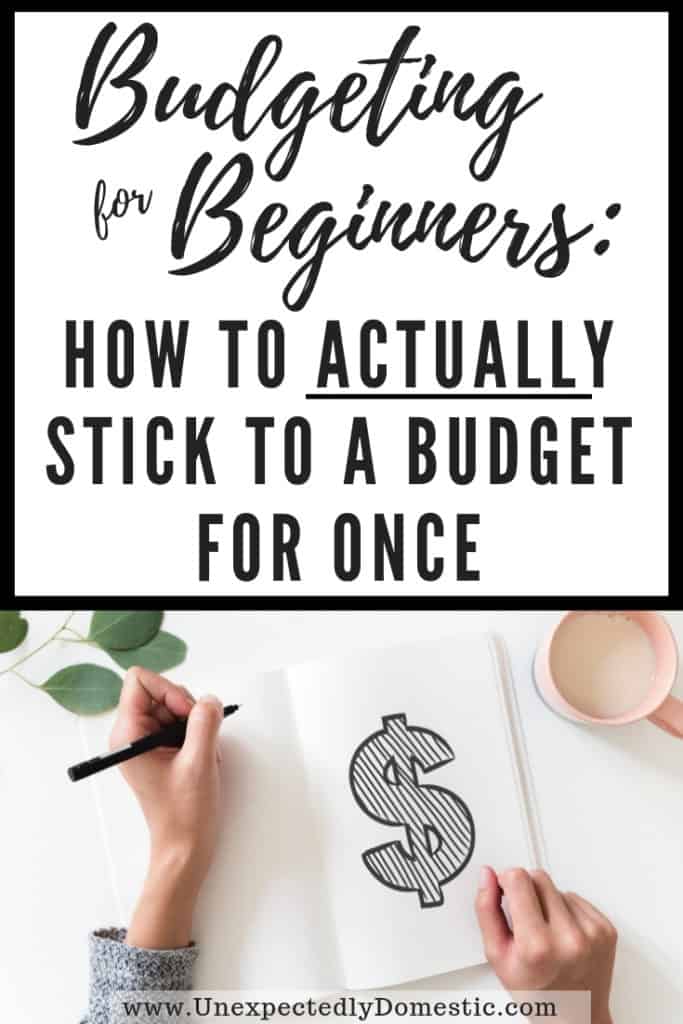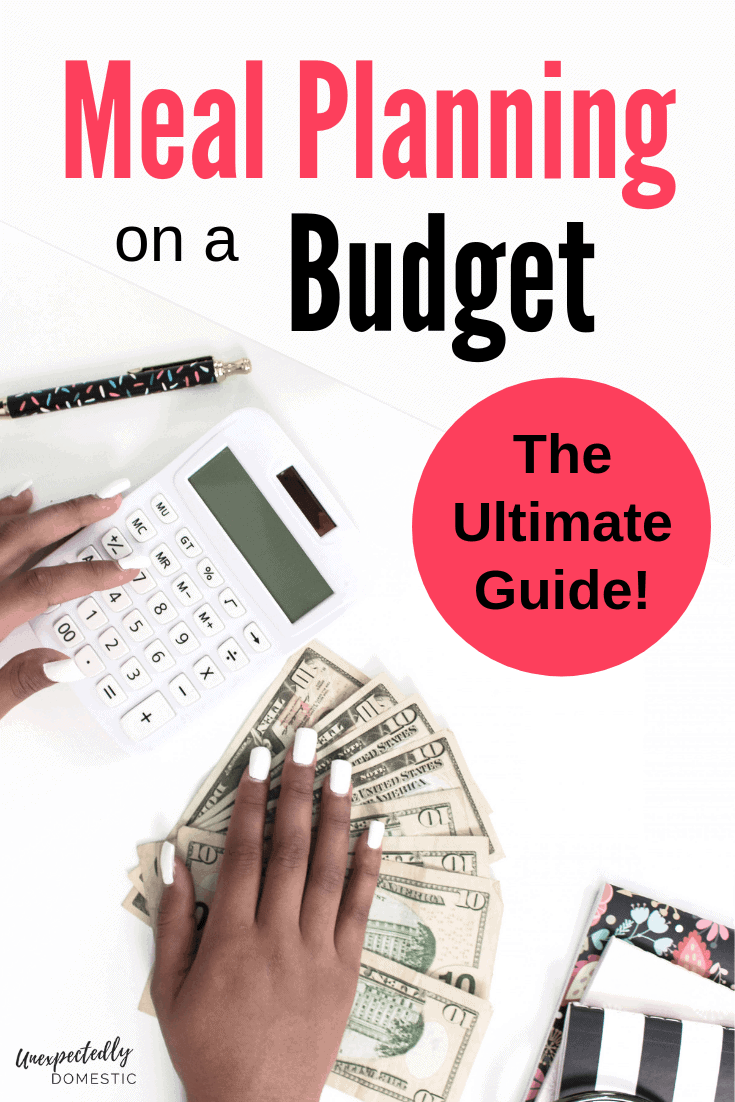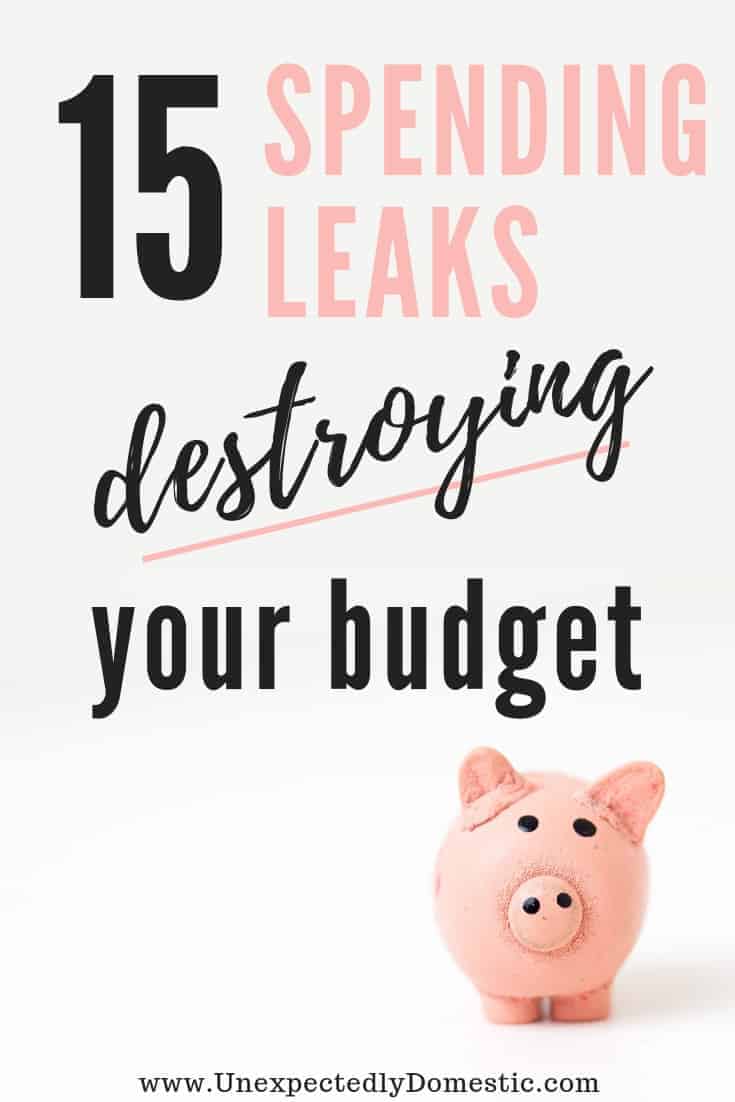Sticking to a Budget: 10 Budgeting Tips for Beginners

Whether you’re new to budgeting, or have made one but never followed through, you might need some tricks to really make it work. Here are some simple budgeting tips for sticking to a budget once and for all.
Let’s face it – managing your money can be challenging. Last week we learned how to change our perspective and create a budget. Now we better look at ways to stay the course.
You May Also Like:
- Budgeting for Beginners: A Step-by-Step Guide to Getting Started
- 10 Money Myths That Are Keeping You Broke
- Where to Start When You’re Flat BROKE
- 10 Ways to Finally Get Control of Your Financial Situation
You probably already know that having a budget means telling your money where to go. As the boss of your own finances, it’s important to have a system that will allow budgeting to be less complicated and more effortless.
Here are 10 tips and tricks that will make sticking to a budget much easier!
This post may contain affiliate links. You can view my full disclosure policy here.
👉 Join our FREE 3 Day Budget Quickstart Challenge! It’ll walk you through creating a custom budget for YOUR exact situation.
Sticking to a Budget 101
1. Get everyone involved
When you first begin living on a budget, it really helps to get the other people in your household on board. It’s important for your family members to know in advance that the spending habits will be changing.
You’ll get a lot less resistance if you keep them informed. Share the reasons why you started budgeting, and the benefits that will come from it.
Present the new financial plan as a very positive thing, or a ‘game’ of sorts. Let them know that you’ll need their support. And that everyone can help in their own way.

2. Keep an eye on your grocery bill
If there’s one place that your budget can quickly go astray, it’s food. In fact, besides your housing, it might be one of your biggest expenses.
Be intentional about how much you’re spending at the grocery store. Meal planning can really go a long way in helping with this. You’ll save lots of money, and stay within your budget.
If you struggle to manage your grocery budget, check out these helpful resources:
- 5 Ways to Save Money on Groceries (without coupons!)
- Slash Your Grocery Budget in 5 Days with this FREE ecourse
- Get Started Meal Planning Today: 10 Super Easy Tricks
3. Read a book
Educating yourself about personal finance really isn’t as difficult as you’d think. The #1 way that I learned how to manage money was by reading The Total Money Makeover.
The wisdom in that book was so helpful and inspiring that we were able to totally turn our finances around. It was truly a money makeover.
Here are some resources to makeover your finances:
- The Total Money Makeover
- Total Money Makeover Workbook
- 9 Step to Financial Freedom
- The Money Book for the Young, Fabulous and Broke
- The Automatic Millionaire
- Women & Money

4. Budget for every dollar
A budget is simply a financial plan in which you tell your money where to go. That means that every dollar needs an intention.
If you have money left over after paying your bills, decide exactly what you’ll do with it. It could be paying extra on your credit card or student loan debt. Or adding it to your emergency fund or savings account.
You’ll end up blowing money on random stuff if you don’t have a plan for each and every dollar.
5. Pay debt off quickly
Does your budget feel tight right now? Paying down debt will make it seem more spacious.
Check your budget and see how much of your money goes to debt repayment. Imagine if you got to keep all that extra money instead of giving it away?
The faster you pay off your debt, the less you will pay in interest. Plus, you’ll be able to start achieving those financial goals sooner!
6. Be patient with yourself
If you have an overachiever personality, maybe you get frustrated when you can’t attain budgeting perfection immediately.
Managing your money is an ongoing process, so try to accept that it consists of tons of small choices and changes.
Be realistic about what how much you can change at once. You may need to slowly decrease spending in certain areas, instead of a sudden, major overhaul.
You know yourself best, so continue experimenting with what will really work for you.
7. Always track your spending
The key to sticking to a budget long-term is to track your spending. That means keeping a list of where your money is going.
From groceries, to eating out, to clothes, to other miscellaneous expenditures. You’ll be able to see where your money goes on a weekly or monthly basis.

8. Know the difference between a need and a want
A need is something you have to have to survive, and a want is pretty much everything else.
You need to eat; you want to eat filet mignon. You need clothing; you want to buy 5 new sweaters at Nordstrom.
Spending less is the #1 way that sticking to a budget will be successful. You might need to get creative!
Sometimes I have a problem with buying things just because they are a ‘good deal.’ And often they really are a very good deal. But it’s still wasted money if they don’t serve any good purpose.
By just asking ourselves ‘is this a need or a want?’ before adding it to the cart, we can quickly eliminate a lot of unnecessary spending.
9. Make more money
If the thought of spending less money repulses you, there is another solution. Sticking to a budget is a whole lot easier if you earn more money!
That could mean getting a higher paying job, asking for a raise, or (my favorite) starting a side hustle.
Making money on your own little side business is incredibly rewarding. I know you already have some sort of skill that people need. And are willing to pay you for.
You can scale it to whatever extent you want. The income possibilities are almost endless really.
Here are 21 ways you can earn extra money!

Related reading:
- 21 Ways to Earn Extra Money
- 5 Ways to Make Money From Home with No Experience (+ the resources to get started!)
10. Monitor and adjust
Your budget is like a living thing that needs to be monitored on an ongoing basis. You’ll be able to see monthly what is working and what needs to be adjusted.
No budget is ever set in stone, and you will keep learning how to tweak it. Maybe you decided that you didn’t allocate enough for groceries. Or you paid off your credit card, so you have extra money to use somewhere else.
If you’re always overspending in a certain area, increase how much you allocate to that category. Adjust your budget so you spend less elsewhere to accommodate it.
Monitoring your finances will keep you motivated to spend wisely and keep your goals in focus. Please don’t give it up because it gets difficult sometimes. Find a way to make it work for you.
A budget isn’t a jail cell; it’s the tool you need to live the life you want, long-term.
You can do it!
You’re starting to see all the ways that you can make sticking to a budget work. It’s a personal thing. And it’s up to you to manage it however works best for you.
Start by budgeting for every dollar, keeping track of what you spend, and reading a book to improve your personal finance knowledge.
Forget that notion that you’re ‘not good with money.’ You are either not yet super knowledgeable about managing your finances, or you just don’t care to be. Be honest with yourself.
Here’s your opportunity to fix it.
Anyone can do this – even you! Change your financial future by sticking to a budget.
Go forth and budget, my dear!
P.S. Don’t forget to join the FREE 3 Day Budget Quickstart Challenge! It’ll walk you through creating a custom budget for YOUR exact situation.







